Being invited into someone’s home is a privilege that comes with unspoken rules. While your host might smile through gritted teeth, certain behaviors can make them think twice about inviting you back. Good manners aren’t just about saying ‘please’ and ‘thank you’ – they’re about respecting someone’s personal space and boundaries.
Your Host Is Too Polite to Say It, But These 12 Habits Are Rude
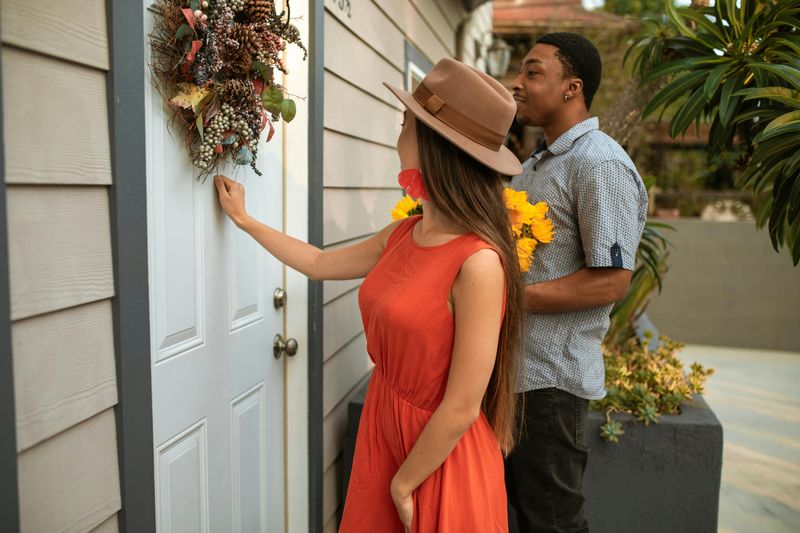
Being invited into someone’s home is a privilege that comes with unspoken rules. While your host might smile through gritted teeth, certain behaviors can make them think twice about inviting you back. Good manners aren’t just about saying ‘please’ and ‘thank you’ – they’re about respecting someone’s personal space and boundaries.
Rummaging Through Cabinets Without Permission
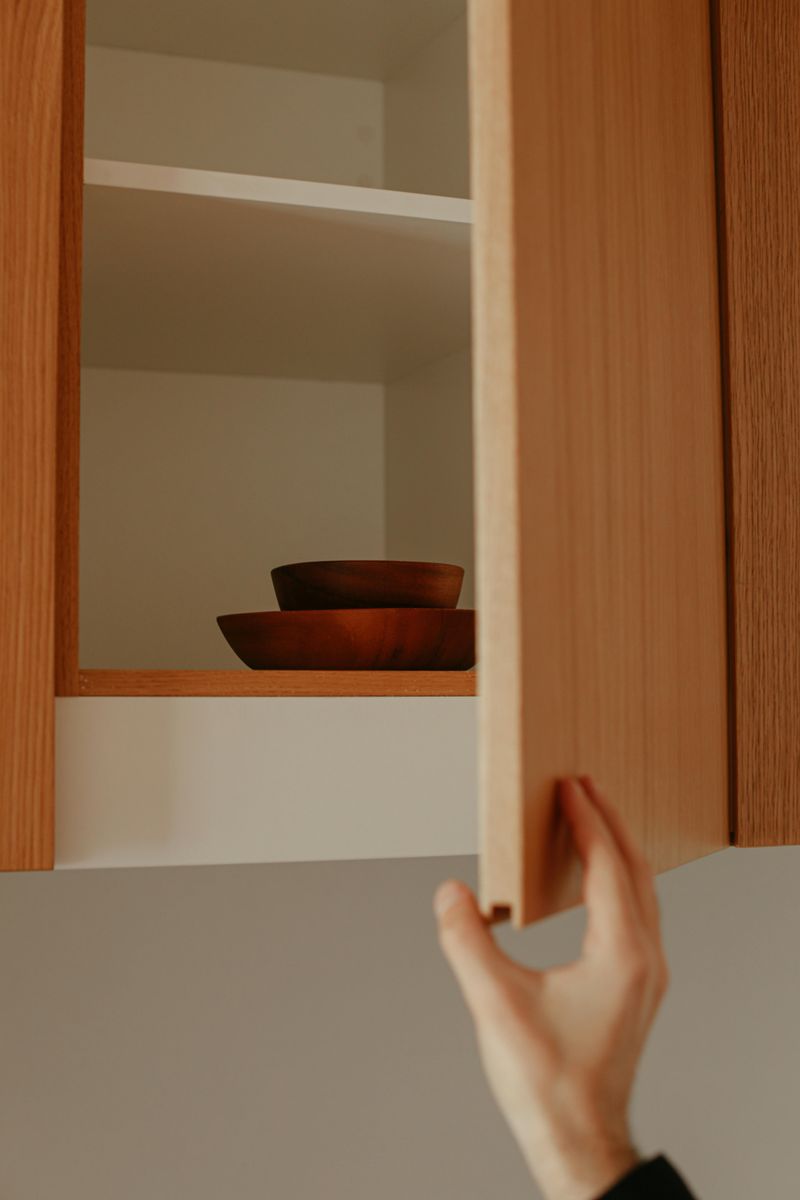
That moment when you’re thirsty and decide to hunt for a glass yourself can make your host secretly cringe. Their kitchen organization system might be different from yours, or they might have personal items tucked away.
Most hosts are happy to get you what you need – just ask! This simple courtesy acknowledges you respect their space. If they’ve told you to make yourself at home, clarify what that means before exploring.
Remember, what seems helpful to you might feel invasive to them. Their home is their sanctuary, not a self-service restaurant.
Peeking Inside the Refrigerator Uninvited

Opening someone’s fridge without asking feels like reading their diary. That cold box contains food choices, dietary habits, and sometimes embarrassing condiment collections your host might not be ready to share.
Hunger strikes everyone, but announcing your needs allows your host to either offer something appropriate or explain when meal plans are happening. Many hosts prepare specific food for guests and might feel awkward if you discover their half-eaten leftovers.
The refrigerator often holds expensive or specially saved items. Your casual browsing might disrupt meal plans or special occasions.
Investigating Personal Belongings

Curiosity killed the cat – and might kill your friendship too! When you wander into bedrooms or open bathroom medicine cabinets, you cross an invisible line. Those drawers and closets contain private items your host never intended for public viewing.
Even casual snooping through bookshelves or desk drawers feels violating. Your host shouldn’t have to hide personal items before you visit. Respect extends to digital privacy too – glancing at mail, notes, or computer screens is equally inappropriate.
Stick to common areas unless specifically invited elsewhere. If you need something, ask instead of searching.
Demanding a House Tour
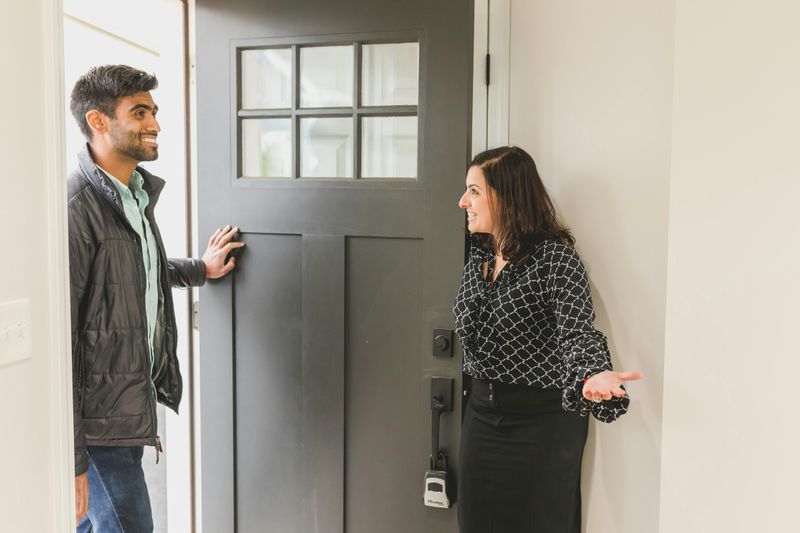
Not every homeowner wants to play real estate agent during your visit. Some rooms might be messy, under renovation, or simply private. Expecting a full walkthrough puts hosts in an awkward position of either revealing spaces they’re not proud of or refusing and seeming rude.
Many hosts have “company-ready” areas and personal retreats they keep separate. Respect these boundaries. If they offer a tour, wonderful! If not, enjoy the spaces you’ve been welcomed into.
Remember that homes reflect personal lives, not magazine spreads. Your judgment-free presence in designated areas makes everyone more comfortable.
Arriving With Surprise Companions
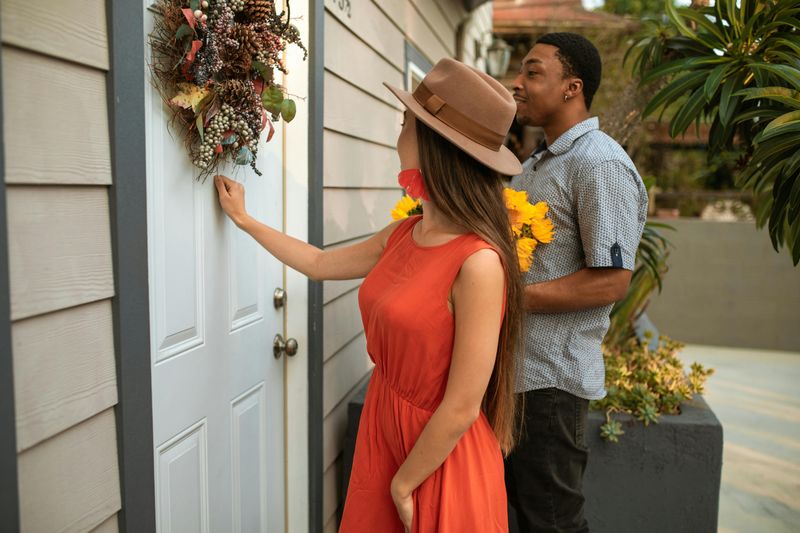
Nothing throws off dinner plans like unexpected plus-ones – human or furry! Food portions, seating arrangements, and allergies all factor into hosting. That surprise friend or pet can create genuine stress for your host.
Hosts prepare based on expected guest counts. Extra people might mean not enough food, inadequate seating, or disrupted conversation flow. For pets, there might be allergies, phobias, or resident animals to consider.
Always confirm before bringing anyone extra. A simple text saying, “Mind if I bring Sam along?” gives your host the chance to prepare properly or politely decline if it won’t work.
Showing Up Unannounced or Early

Catching your host in their pajamas or interrupting their pre-party preparation ritual creates instant awkwardness. Those final minutes before guests arrive often involve crucial finishing touches or personal grooming.
Early arrivals force hosts to entertain while still cooking or cleaning. Unannounced visits might disrupt important work, private moments, or plans to go out. Many hosts need time to mentally prepare for socializing.
Aim to arrive within 5-10 minutes of the invited time. If running significantly early, wait nearby or text to ask if it’s convenient. Spontaneous visits should be reserved for very close relationships where such casualness has been established.
Lingering When the Party’s Clearly Over

Missing the cues that it’s time to leave puts your host in the uncomfortable position of having to directly ask you to go. Yawning, cleaning up, checking the time repeatedly, or mentioning early morning plans are all subtle hints your host is ready for alone time.
After other guests depart, your continued presence prevents your exhausted host from relaxing. They might need to wake early, finish cleaning, or simply decompress. Even close friends should respect these boundaries.
Watch for signals and offer to leave before being asked. A gracious exit shows you value their time and comfort as much as their hospitality.
Ignoring Household Rules

When your host mentions their shoes-off policy but you keep your sneakers on, you’re essentially saying your comfort trumps their home standards. Every household has different norms – from where drinks are allowed to voice volume after certain hours.
These rules often exist for practical reasons. Perhaps they have allergies, new flooring, sleeping children, or noise-sensitive neighbors. Following their guidelines shows basic respect for their space and circumstances.
If a rule feels uncomfortable, politely ask about alternatives rather than ignoring it. Bringing slippers for a shoes-off home or asking where smoking is permitted shows consideration.
Creating Messes Without Cleanup Offers

Leaving your dinner plate on the coffee table or spilling wine without grabbing a towel creates extra work for someone who already cooked and planned for you. Good guests contribute to maintaining the space they’re enjoying.
Hosting already involves significant preparation and cleanup. When you stack plates, gather glasses, or wipe up your own spills, you demonstrate awareness of this effort. These small gestures make hosts feel appreciated rather than taken for granted.
You don’t need to deep clean, but offering to help with dishes or taking your glass to the kitchen shows basic consideration. Remember: you’re a participant, not a customer.
Hiding Accidents or Damages

Spilling red wine on a white couch then flipping the cushion isn’t clever – it’s deceitful. Accidents happen to everyone, but hiding them prevents proper cleaning and can permanently damage belongings.
Immediate attention often prevents stains from setting or allows for proper repairs. Your host likely values honesty more than perfection. Most reasonable people understand that accidents occur and appreciate the chance to address them promptly.
Acknowledge mistakes, apologize sincerely, and offer to help clean or replace damaged items. This mature approach maintains trust and shows respect for their possessions, even when things go wrong.
Becoming Glued to Your Phone

Constantly checking notifications while someone has prepared a meal and environment specifically for social connection sends a clear message: your digital world matters more than their real-world efforts. Phone addiction at social gatherings has become normalized but remains fundamentally discourteous.
Your host has invested time, money, and energy to create an experience. Scrolling through social media or answering non-urgent texts communicates boredom or disinterest. It also disrupts conversation flow and makes meaningful connection impossible.
Try keeping your phone in your pocket or bag. If expecting an important call, mention it upfront and step away briefly when needed.
Adjusting Home Settings Without Permission
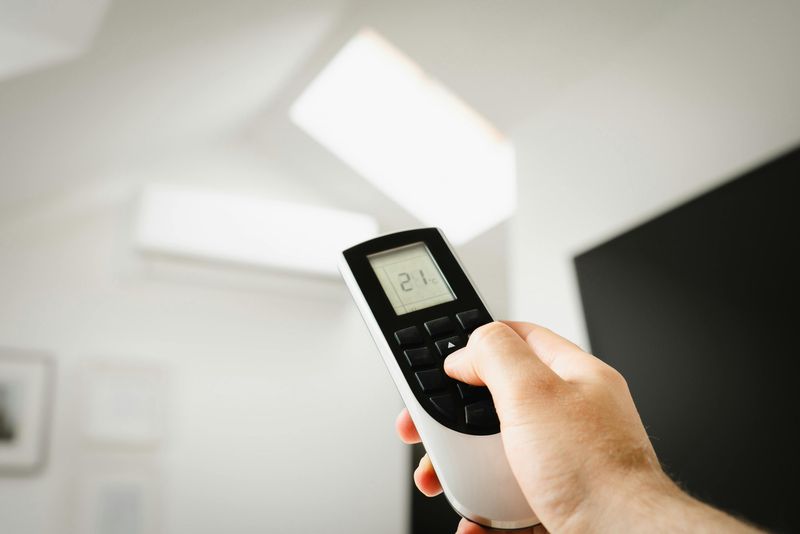
Cranking up the thermostat or dimming lights without asking might seem minor, but it oversteps important boundaries. Temperature preferences, lighting choices, and music volume are deeply personal and often carefully calibrated by your host.
Home environments reflect comfort preferences and sometimes practical concerns like energy bills. What feels too cold for you might be perfect for someone who runs hot or is trying to manage costs. Lighting choices might relate to ambiance goals or even migraine prevention.
If you’re uncomfortable, a polite question works wonders: “Would you mind if we adjusted the temperature a bit? I’m feeling chilly.” This gives your host control over their domain.

Comments
Loading…